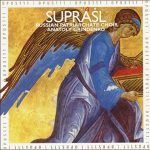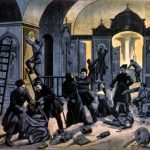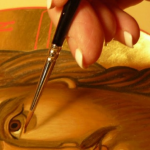As Holy Week approaches and we prepare ourselves both spiritually and physically for a demanding time of salvific drama and cosmic triumph, we offer a truly heavenly rendition of the “Cherubic Hymn” by Anatoly Grindenko and the Russian Patriarchate Choir, taken from their sublimely beautiful album “Suprasl.” The music was painstakingly deciphered … [Read more...] about Listen to “Suprasl” — Orthodox Chant Discovered from a Lost 16th Century Illuminated Manuscript [VIDEO]
The Arts
Beauty and Desecration: We must rescue art from the modern intoxication with ugliness
Source: City Journal By Roger Scruton At any time between 1750 and 1930, if you had asked an educated person to describe the goal of poetry, art, or music, “beauty” would have been the answer. And if you had asked what the point of that was, you would have learned that beauty is a value, as important in its way as truth and goodness, and indeed hardly … [Read more...] about Beauty and Desecration: We must rescue art from the modern intoxication with ugliness
Kontakion for the Holy Theophany
By St. Romanos the Melodist Today you have appeared to the whole world, and your light, O Lord, has made a sign upon us who, with knowledge, sing your praise, “You have come, you have appeared, the unapproachable Light.” In Galilee of the Gentiles, in the country of Zebulon and the land of Nepthali, as the prophet said, a great light has shone—Christ … [Read more...] about Kontakion for the Holy Theophany
Is “Write” Wrong? A Discussion of Icon Terminology
By Mary Lowell Source: Orthodox Arts Journal. Professor John Yiannias, Ph.D., expert in Early Christian and Byzantine Art, University of Pittsburgh, has a bold opinion on the issue of why “write” is the wrong verb to use for making an icon. “While, on the face of it, the subject may appear only tangentially relevant to American Orthodox history, it … [Read more...] about Is “Write” Wrong? A Discussion of Icon Terminology
How to Read and Study Dostoevsky
I. Difficulties in Reading Dostoevsky Dostoevsky's novels are relatively accessible, and they are usually quite engaging, so most readers are able to plunge right in without preliminaries.1 Two obstacles, however, should be noted at the outset. The first is an obvious one: between the many diminutives and nicknames, as well as the "patronyms" (derived from the father's first … [Read more...] about How to Read and Study Dostoevsky




